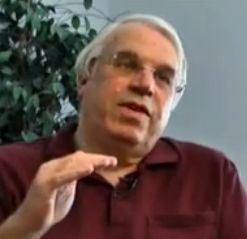 Everything you need to know about today’s coverage of Israel and the Mideast. Join the Israel Daily News Stream on Facebook.
Everything you need to know about today’s coverage of Israel and the Mideast. Join the Israel Daily News Stream on Facebook.
Today’s Top Stories:
1. The Fars fabrications is escalating to legal action. This from Reuters:
“President Mursi was never interviewed by Iran’s Fars news agency. The interview was fabricated and his presidential office has begun taking legal action against the news agency,” Yasser Ali told Reuters.

2. Hamas blames the Mossad for the murder of another one of its officials. Kamal Ranaja, who was killed in Damascus, had been an aide to Mahmoud Mabhouh, himself mysteriously murdered in Dubai. Ehud Barak said a lot of people were interested in seeing Ranaja dead. Indeed, Maan News adds:
Several websites affiliated to the opposition to President Bashar Assad blamed the Syrian regime for Ghanaja’s killing and said Assad’s forces murdered the Hamas leader as a message to the movement not to reject its long-time ally.
Bashar Assad doesn’t have the credibility to recreate Dubai’s “snarky drip feed” of info, which kept Israel in the headlines for a long time.
3. The Lede picks up on a new debate within the Syrian opposition:
The initial report from state television that journalists were executed provoked some sharp disagreements among Syrian bloggers on Wednesday about whether reporters whose work might be considered propaganda are legitimate targets for the armed rebels fighting to overthrow the Assad government.
A similar debate had a different tone during the Second War in Lebanon. Israel was slammed for striking Al Manar, Hezbollah’s TV station.
Israel and the Palestinians
• Vice Premier Shaul Mofaz to meet Mahmoud Abbas on Sunday in Ramallah. Reuters coverage.
• Jonathan Tobin and Yisrael Medad take exception to yesterday’s NY Times dispatch from Battir. That’s where Palestinians are trying to get UNESCO World Heritage status for the ancient terraced irrigation system in order to block Israeli plans for a nearby stretch of the security fence. Reporter Isabel Kershner omitted Jewish ties to Battir (a.k.a. Betar). As Tobin sums it up:
But the main point here is not so much the argument about the location of the fence as it is the willful erasure of the Jewish connections of a place that Palestinians are seeking to have honored for its historical significance. Betar was the last gasp of Jewish sovereignty in the land of Israel for 1,800 years and a place where tens of thousands of Jews were slaughtered by the Romans.

• Ex-Israeli diplomat Alon Liel supports boycotting settlements. He argues in The Guardian:
So, if we want to stick to the two-state solution, then we must begin to seriously tackle the settlement expansion which poses an existential threat to it. Here lies the relevance of the symbolic act of preventing settlement products from being marked as Made in Israel. By denying this label to settlement products, international governments protect and reinforce the pre-1967 border. Moreover, they give their own consumers the free choice of whether to buy products from settlements.
I disagree with Liel’s fundamental assumption that settlements are the real obstacle to peace. The obstacle to peace is the fact that the Palestinians can’t accept Israel’s existence within the ’67 borders either. Liel also told the Times of Israel he supports Alice Walker’s refusal to translate “The Color Purple” into Hebrew.
• Worth reading: Israel HaYom interviewed the author of the IDF’s ethical code, Professor Asa Kasher. The conversation touched on prisoner swaps, human shields, African infiltrators, and drafting haredim.
• Germany’s Foreign Minister joins chorus for Olympic moment of silence. More at the Times of Israel.
• The BBC and Sydney Morning Herald pick up on a UK government backed report on the effects of Israel’s military judicial system on Palestinian kids.

